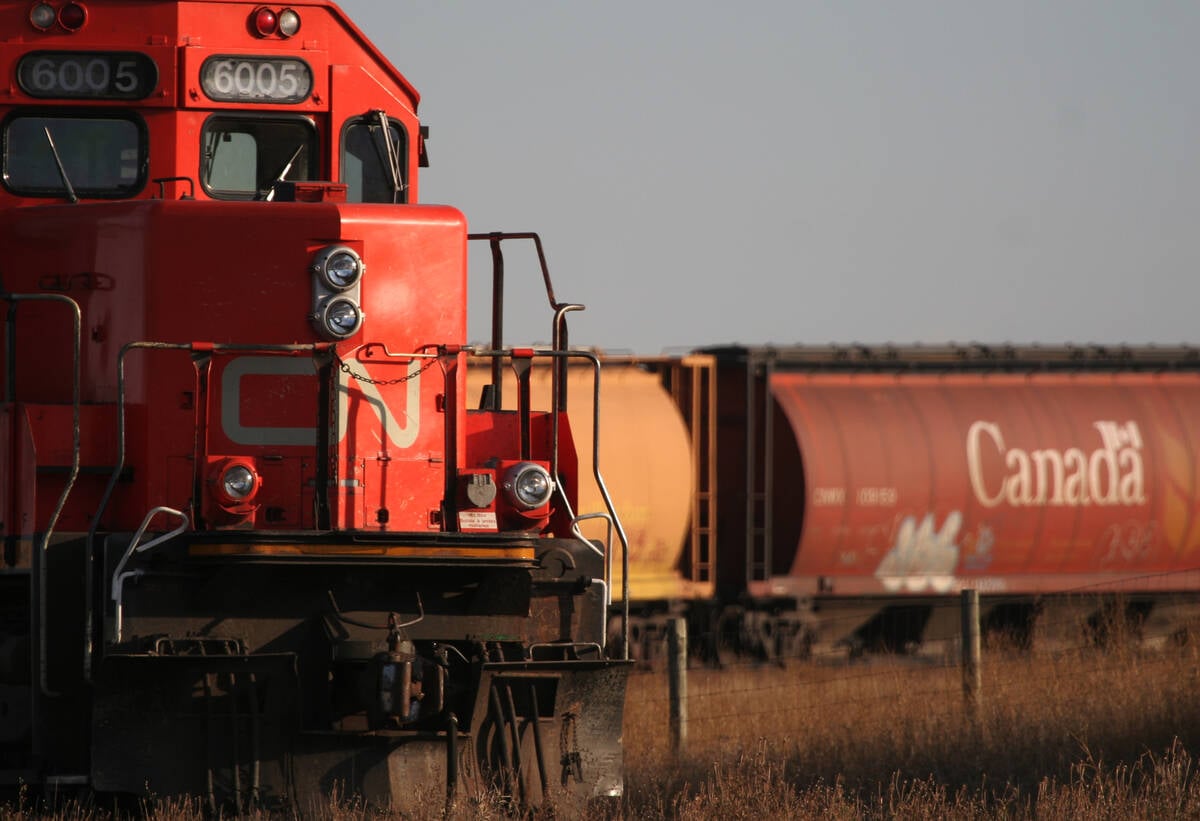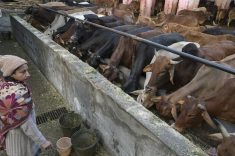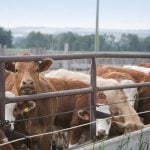Manitoba is sort of ready for the ethanol industry to roar out of the
shadows and become an important economic engine, says Manitoba premier
Gary Doer.
The industry is about to launch a new expansion, farmers are prepared,
and Doer said he is dedicated to making it happen, but the Manitoba
public will have to be convinced, he said.
Doer thinks the province should force gas stations to make all regular
gasoline include 10 percent ethanol. Before he begins pushing for such
Read Also

Canada-U.S. trade relationship called complex
Trade issues existed long before U.S. president Donald Trump and his on-again, off-again tariffs came along, said panelists at a policy summit last month.
legislation, a panel of experts and the public will have to agree on
how government can support the industry.
“I’m very much in favour of a mandate, but I’m going to listen to the
experts and they’re going to listen to the public,” said Doer as he
announced a panel to tour the province to hear public opinions about
ethanol.
“We have the experts who can tell us how we can do it in a sure-footed
way to take the greatest maximum benefits to Manitoba communities.”
The three-person panel will get organized over the summer, then consult
with Manitobans in the fall and early winter.
Keystone Agricultural Producers president Weldon Newton said ethanol
could give grain farmers a new market and the leftover grain could
replace imported soybean meal fed to livestock.
He doesn’t think Manitobans could flood the market.
“There is a huge demand for fuel in North America,” said Newton.
“If the Americans are going to lessen their dependence on foreign oil,
it makes the demand that much greater.”
Doer would like a 10 percent minimum ethanol content rule, because that
has worked well in Minnesota, where there are 13 ethanol plants.
Manitoba has a plant in Minnedosa and Saskatchewan has a plant in
Lanigan, but Doer said a number of Manitoba communities want to build
plants.
Doer acknowledged that ethanol has often been touted as the saviour of
the farm economy, but then failed to live up to its promise. He said
that was due to government indifference and public suspicion.
“I don’t know why we didn’t (impose minimum ethanol content rules) 10
years ago,” he said. “We have to be bold with our policy decisions.”
University of Manitoba economics professor Costas Nicolaou, a member of
the panel, said the government needs to get involved if it wants to see
an ethanol industry in rural Manitoba.
“The market is sometimes not capable of creating by itself the right
conditions. It needs a push,” said Nicolaou.
There would be a number of beneficial results for farmers, he said. The
most important would be creating a steady local market for feed grains.
Saskatchewan last month passed its Ethanol Fuel Act, which will allow
it to mandate an ethanol blend in gasoline sold within its boundaries
once the industry develops. The legislation is part of the government’s
Greenprint for Ethanol Production – the first of its kind in Canada.
The greenprint also includes working to remove barriers to ethanol
exports, working with investors to establish the industry, eliminating
the provincial fuel tax on ethanol produced and consumed in the
province and a call on Ottawa to establish a national mandate.















